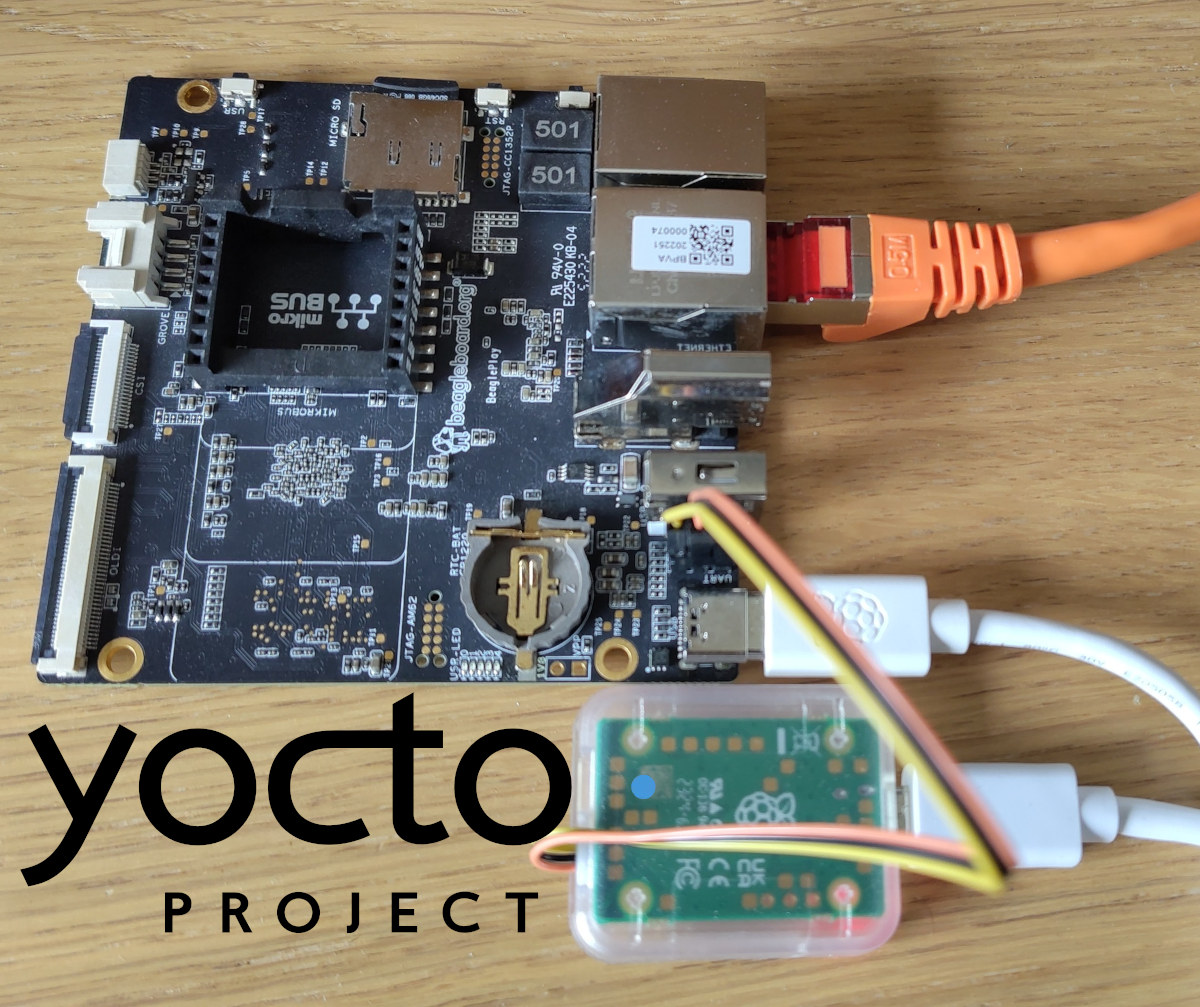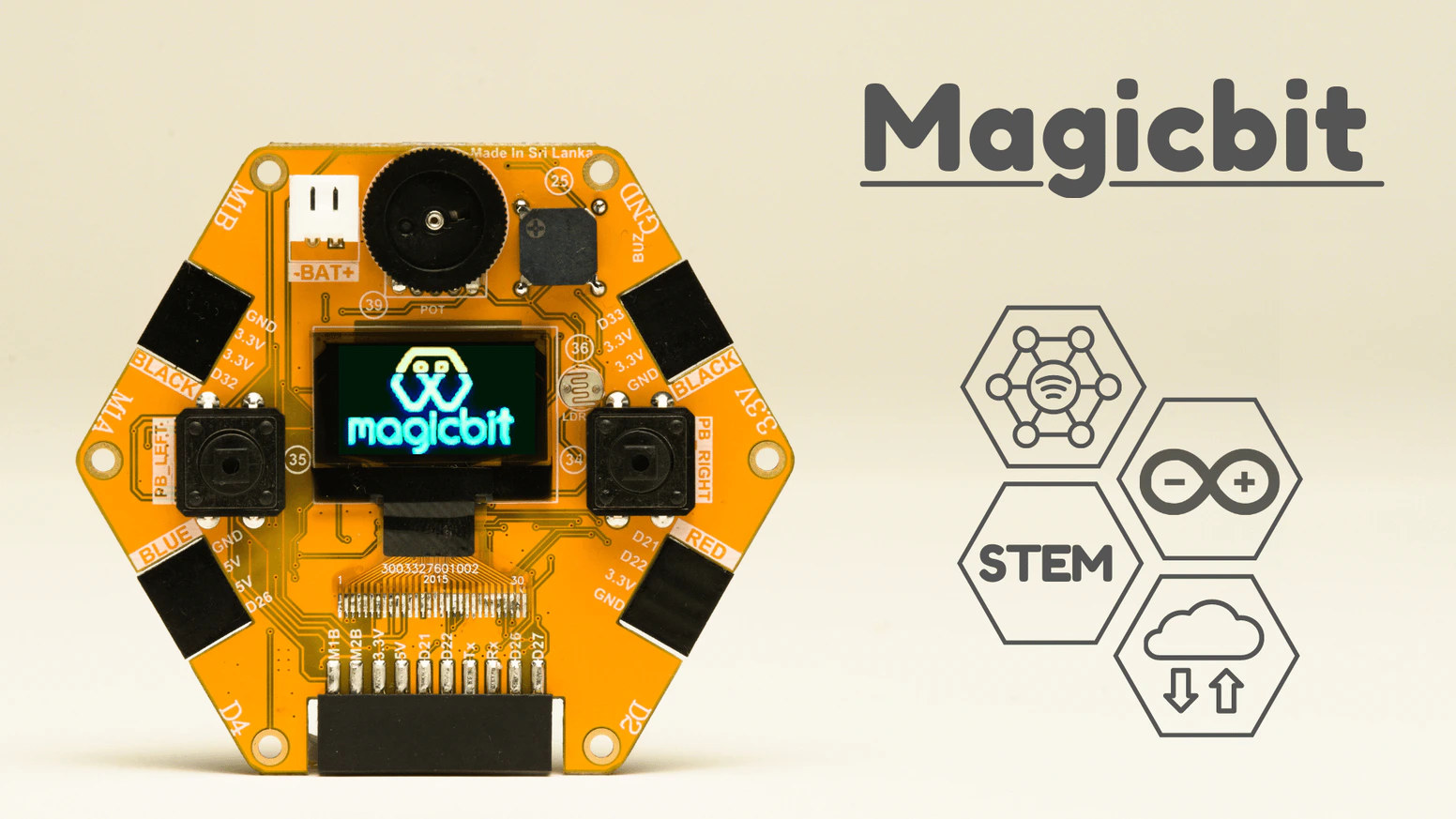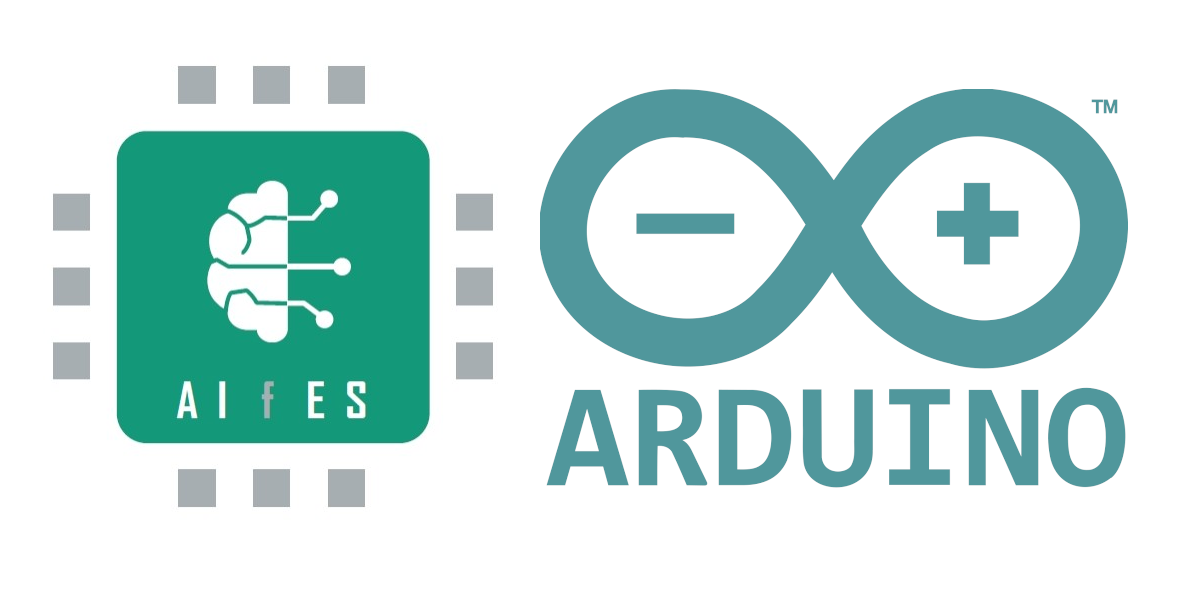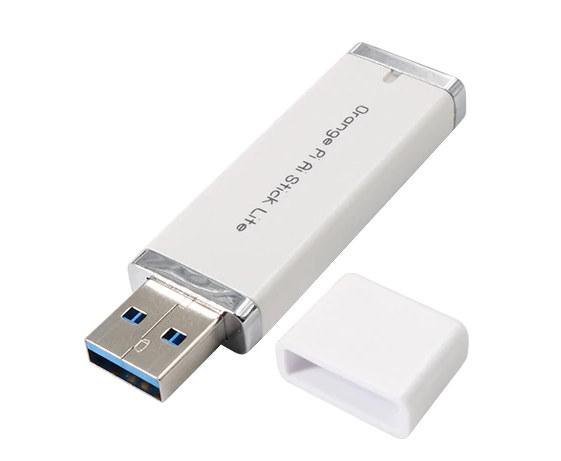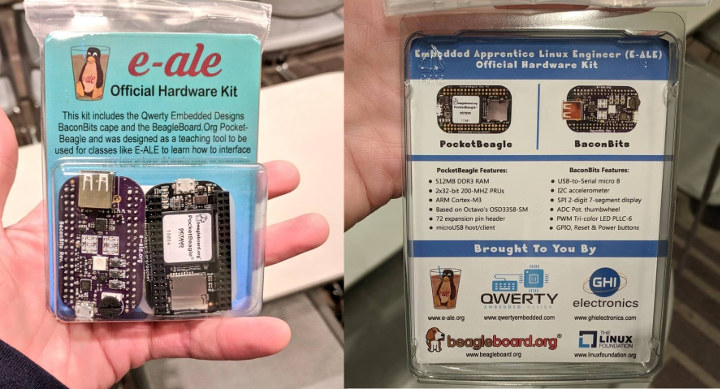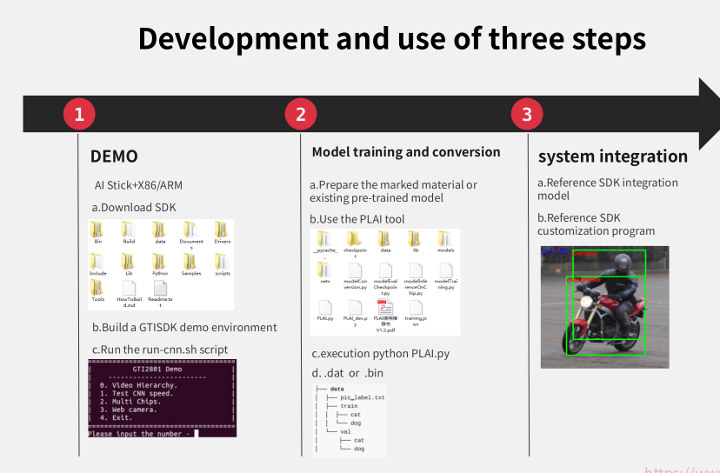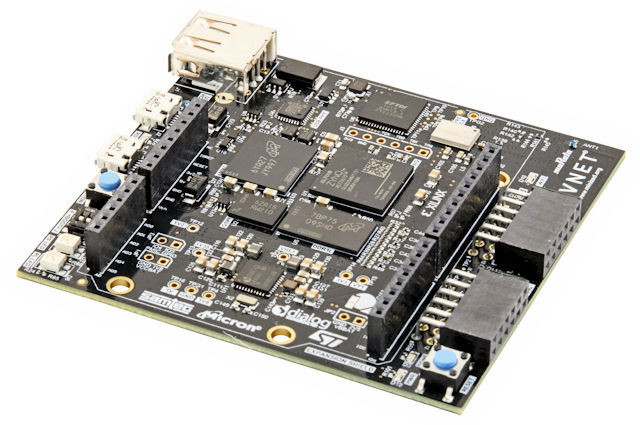Michael Opdenacker, Founder of Root Commit, has published free and open-source training materials on OpenEmbedded and Yocto using the BeaglePlay SBC powered by a Texas Instruments AM625 processor. If the name rings a bell, it’s because Michael was the founder of Bootlin (previously Free Electrons) before selling the company to employees in 2021. He’s now started a new company called Root Commit, where he continues providing Embedded Linux training and development services. He’s kept the tradition of releasing free training materials, with the latest course being related to Yocto development on the BeaglePlay board. You’ll find resources on the Root Commit website with three files, including 220 pages of lectures, 18 practical labs for the BeaglePlay board and QEMU, and source code/patchsets released under a Creative Commons BY-SA 4.0 license. The course includes an introduction to the Yocto Project 5.0 and Embedded Linux, a Getting Started guide explaining how to […]
Magicbit is a wire-free, modular STEM education platform (Crowdfunding)
Magicbit board joins other ESP32 platforms for the STEM education market such as the Crowbits Master Kit or ESP32-based Micro:bit clones with visual programming and Arduino and/or MicroPython support, a mobile app, and training materials such as project tutorials and online courses. Magicbit is designed to be wire-free with the hexagonal board offering four module’s connectors, an OLED display, buttons, a buzzer, and more. You can still use cables if you’d like with six crocodile clip holes and an expansion connector. Magicbit hardware specifications: Wireless module based on ESP32 dual-core processor @ 240 MHz with 520kB RAM and 2.4 GHz WiFi & Bluetooth 4.2/5.x LE connectivity, plus 4MB flash storage Display – OLED display Audio – Buzzer USB – 1x Micro USB port for power and programming Expansion 4x module expansions Motor driver Misc – Reset button, 2x user buttons, potentiometer, light sensor, LEDs Power Supply – 5V via MicroUSB […]
AIfES for Arduino high-efficiency AI framework for microcontrollers becomes open source
AIfES (AI for Embedded Systems) is a standalone, high-efficiency, AI framework, which allows the Fraunhofer Institute for Microelectronic Circuits and Systems, or Fraunhofer IMS for short, to train and run machine learning algorithms on resource-constrained microcontrollers. So far the framework was closed-source and only used internally by Fraunhofer IMS, but following a collaboration with Arduino, AIfES for Arduino is now open-source and free to use for non-commercial projects. The framework has been optimized to allow 8-bit microcontrollers such as the one found in Arduino Uno to implement an Artificial Neural Network (ANN) that can be trained in moderate time. That means offline inference and training on small self-learning battery-powered devices is possible with AIfES without relying on the cloud or other devices. The library implements Feedforward Neural Networks (FNN) that can be freely parameterized, trained, modified, or reloaded at runtime. Programmed in C language, AIfES uses only standard libraries based […]
Orange Pi AI Stick Lite $20 Neural Compute Stick Ships with Free Training Tools
Shenzhen Xunlong Software launched Orange Pi AI Stick 2801 neural compute stick last year for $69. It was interesting as an alternative to Intel Neural Compute Stick. But once the documentation and SDK were released a few days later we discovered you could only run demos with the stick for that price, and the training tools would cost an extra $149. The excellent news is that the company has now launched an updated, yet similar Orange Pi AI Stick Lite for just $19.99, and best of all the PLAI training tools are now entirely free. Orange Pi AI Stick Lite specifications: ASIC – Gyrfalcon SPR2801S Lightspeeur series processor with 2-dimensional Matrix Processing Engine (MPE) with AI Processing in Memory (APiM) delivering up to 2.8TOPS @ 300mW, 5.6 TOPS @ 100 MHz (peak performance) Storage – eMMC 4.5 flash with 68 MB/s read, 84.69 MB/s write Host interface – USB 3.0/2.0 […]
E-ALE is a Free & Open Source Linux Training Program for Embedded Engineers
As I wrote about the Embedded Linux Conference 2019 schedule a few days ago, I found out one of talk planned to use E-ALE hardware kit for the session. I had never heard about this kit, but a quick search led me to e-ale.org website which explains E-ALE stands for Embedded Apprentice Linux Engineer. The training program is made for embedded engineers with experience designing firmware for microcontrollers, but now need to transition to embedded Linux. Training only happens in-person (no webinar) at existing Embedded Linux conferences and is comprised of 8 to 9 seminars over 2 to 3 days. It usually starts with a presentation on one subject, followed by lab time to practice the relevant learned skills. The training takes place on the E-ALE kit at each conference, but it does not refer to a specific hardware platform. In most conferences, the PocketBeagle and BaconBits add-on board are […]
Orange Pi AI Stick 2801 Neural Compute Stick SDK & Documentation Released
We covered the launch of Orange Pi AI Stick 2801 neural compute stick a few days ago, the first easily available Gyralcon Lightspeeur based USB stick, and noted that while the hardware was there, we had no details about software development kit and documentation at the time. I’ve got some more information now. First, the company release an English presentation about the neural stick, and while it’s not technical documentation, it provides insights into what it is capable of, and an overview about the workflow. More importantly, Shenzhen Xunlong Software also released Orange Pi AI Stick SDK and user manual for x86 PC, as well as cat/dog data and pre-trained models to get started. However, if you want to perform training with your own data, you’ll need to purchase the stick plus PLAI model transformation and training tools sold on Aliexpress for $218 plus shipping, that’s $69 for the hardware, […]
20-Hour Free Blockchain Training Course from the Linux Foundation
If we believe all the talk on the internet, blockchain technology will change the future by offering an ultra secure way to store all sort of data, and as we’ve seen with the IOTA tangle previously, it should impact all types of sectors and applications including the Internet of Things. So even if it is still early it might be worth learning more about the technology, and the Linux Foundation, which normally offers course from a few hundred dollars to several thousands dollars, is also offering a free blockchain training course entitled “Blockchain: Understanding Its Uses and Implications“. You’ll get 20 hours of video content and transcript, and can learn on demand at your own pace. Course outline: Chapter 1. Introduction to Blockchain – This section covers some of the technical aspects that comprise a blockchain and explain why blockchain is different and “works” in comparison with technologies of the […]
$89 MiniZed Development Board based on Xilinx Zynq Z-7007S SoC Includes WiFi, Bluetooth, Arduino Headers
Avnet has unveiled MiniZed development board – part of ZedBoard family – powered by a Xilinx Zynq Z-7007s SoC with an ARM Cortex A9 processor and FPGA fabric, supporting WiFi and Bluetooth connectivity, and equipped with Arduino and PMOD headers. MiniZed board (AES-MINIZED-7Z007-G) specifications: SoC – Xilinx Zynq-7007S single ARM Cortex A9 processor up to 677 MHz + FPGA with 23K logic cells, 1.8 Mb block RAM, 60 DSP slices System Memory – 512 MB DDR3L Storage – 8 GB eMMC flash, 128 Mbit QSPI flash Connectivity – Wi-Fi 802.11b/g/n and Bluetooth 4.1 plus EDR and BLE via Murata “Type 1DX” wireless module USB – 1x USB 2.0 host port Sensors – 3-axis accelerator and temperature sensor (LIS2DS12); Digital Microphone (MP34DT05) Expansion Interfaces: 2x Pmod compatible connectors with 16x GPIOs Arduino UNO R3 compatible header with 22x GPIOs Debugging – JTAG and serial console via micro USB port Misc – 2x […]

